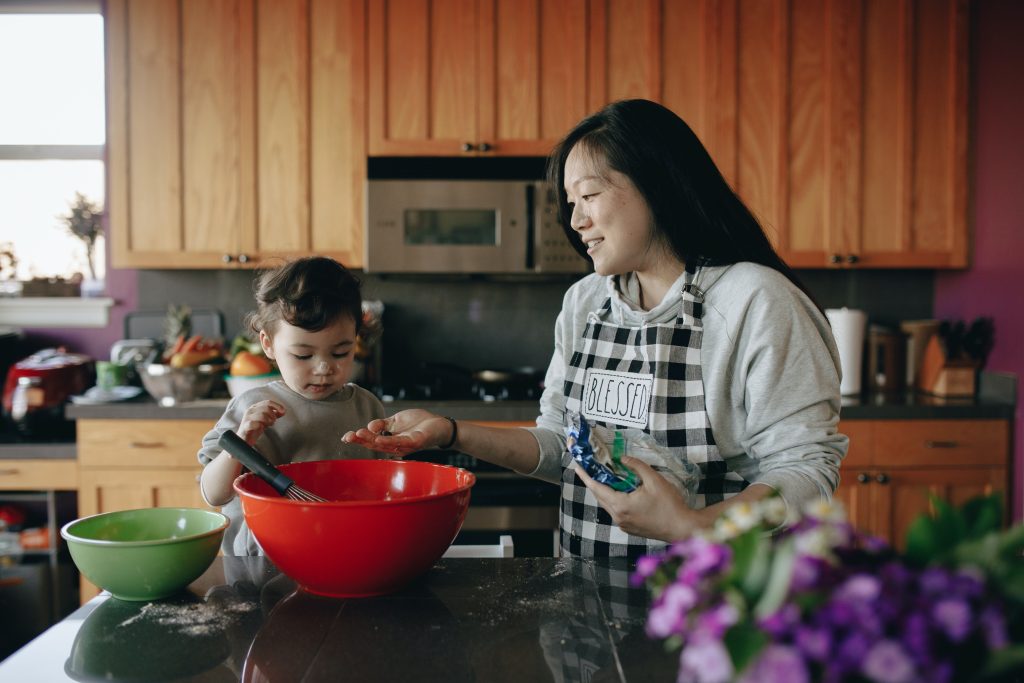Elizabeth Shields is an experienced author who writes online articles covering various topics, including parenting, home improvement, wellness, and sustainability. She resides in Indianapolis as a married mother of two.
In the ever-evolving landscape of parenting, a refreshing breeze has swept in, carrying with it the concept of gentle parenting. Imagine a world where raising children is centered on empathy, where discipline is replaced with understanding, and where fostering independence is achieved through respectful guidance, all while considering the crucial factor of motherhood mental health.
If you’re intrigued by this novel approach but find yourself unsure about its ins and outs, you’re not alone. In this blog, we’ll equip you with the knowledge to determine if it’s the right fit for your family. From its principles to the practical strategies that underpin it, we’re here to provide you with everything you need to know about gentle parenting.

What is gentle parenting?
Gentle parenting operates on a foundation of core principles that harmoniously blend care and guidance. First and foremost, it’s about empathy—the ability to step into your child’s shoes, understand their emotions and respond with compassion. It revolves around effective communication, where open dialogue is encouraged to address concerns, share feelings, and navigate challenges together. But perhaps the cornerstone is respect—respect for your child’s autonomy, feelings, and uniqueness.
Discipline takes on a different meaning. Instead of punitive measures, it’s about teaching children the consequences of their actions through meaningful discussions and problem-solving. The goal is to create an environment where your child feels secure, valued, and understood, fostering not only their emotional intelligence but also their sense of self-worth. Through empathy, communication, and respect, gentle parenting paves the way for an enriching parent-child relationship that empowers children to blossom into confident, compassionate individuals.

The benefits and drawbacks of gentle parenting
Embracing gentle parenting unveils a host of compelling benefits that extend beyond conventional parenting approaches. Here are the advantages:
- Empathy Development: parents cultivate a sense of emotional awareness by acknowledging and validating a child’s emotions, whether positive or negative. This foundation of emotional literacy provides children with the tools to identify and label their feelings accurately. As children internalize this recognition, they naturally become more attuned to the emotional cues of others. This heightened awareness paves the way for the development of empathy—the capacity to comprehend and connect with the feelings of others.
- Confident Expression: When children consistently encounter an environment where their words are met with genuine interest and respect, they naturally develop the confidence to articulate their emotions, desires, and opinions. The absence of criticism or reprimand encourages them to explore their thoughts without reservation, ultimately building their self-esteem. This positive reinforcement of their expressions nurtures a sense of agency, empowering them to communicate effectively in various situations.
- Strong Bonds: As open communication and mutual respect become integral components of the parent-child relationship, a cycle of positive reinforcement takes shape. Children feel valued and understood, which bolsters their self-esteem and encourages them to share more openly. In turn, parents’ active listening and respect reinforce their children’s trust, solidifying the bond even further.
- Positive Discipline: The shift from punitive measures can turn to meaningful teaching moments. Rather than resorting to punitive actions that evoke fear or shame, parents engage in constructive discussions that help children grasp the impact of their choices. Parents encourage their children to develop a deeper awareness of their actions and their repercussions by emphasizing the “why” behind behaviors.
- Emotional Regulation: As children navigate their emotions, they learn to manage these emotions in constructive ways. Parents will guide children toward various coping strategies, such as deep breathing, mindfulness, or seeking comfort through positive activities. Children gain resilience and the ability to respond to challenges with composure and self-assuredness.
- Independence: Parents nurture a sense of agency and responsibility by offering children opportunities to make age-appropriate decisions. From simple choices like selecting their outfit to more significant decisions, such as planning activities, children learn to assess options and make informed choices based on their preferences and needs. Take for example, immersive play where children are encouraged to engage deeply with their surroundings, harnessing their natural inclination to learn and discover. Such activity allows them to develop a sense of ownership over their actions, leading to increased confidence in their decision-making abilities.
- Conflict Resolution: Actively listening to all perspectives allows children to learn the value of considering multiple viewpoints and practicing empathy, even in challenging situations. As parents and children solve problems collaboratively, children actively participate in finding solutions, fostering a sense of ownership and responsibility for the outcomes of their interactions.

While gentle parenting offers a wealth of advantages, it’s essential to acknowledge the challenges that may arise. Here are the following limitations:
- Time-Intensive: Gentle parenting demands more time and patience due to its focus on open communication and understanding posing challenges in modern, fast-paced lifestyles. Parents might need to find a balance between work, household responsibilities, and emotional demands.
- Consistency Challenges: During busy periods, such as work deadlines, household responsibilities, or other commitments, parents might find it difficult to dedicate the same level of time and energy. This might lead to moments of frustration, and impatience that deviate from the intended approach.
- Delayed Results: This approach avoids punitive measures and instead focuses on teaching through dialogue and collaboration. While this can lead to a deeper and more lasting change, it may not yield immediate, visible results. Positive changes in behavior and understanding may take longer to materialize compared to traditional methods.
- Criticism and Doubts: Criticism from others and doubts about effectiveness might lead to parental uncertainty. They might question whether they are making the right choices for their children’s upbringing or worry about the potential consequences of deviating from more commonly accepted methods.
- Complex Situations: Understanding and communication can present challenges in situations requiring immediate action or decisions, such as emergencies or time-sensitive events. Balancing the approach’s principles with the demands of specific scenarios is essential for effective parenting in complex situations.
tips for practicing gentle parenting
Gentle parenting comes to life through actionable strategies that seamlessly fit into your daily routines. Effectively communicate by actively listening to your child’s emotions, creating an atmosphere of trust and empathy. Set respectful boundaries that guide behavior while honoring your child’s autonomy and offering a sense of security. Replacing punitive measures with teaching moments like assigning kid-friendly kitchen tasks, letting them make their bed, or bonding with them when preparing snacks. These activities encourage accountability and critical thinking through effective guidance and learning.
Lead by example, showcase emotional regulation and empathy in your interactions. Be an emotionally safe space where feelings are freely expressed and validated. Applaud their efforts and learning through positive reinforcement, shifting the focus from outcomes alone. Encourage collaborative discussions to solve problems, inviting your child to engage empathetically and seek resolutions in conflicts. Tailor gentle parenting to your child’s individuality, developmental phases, and scenarios to nurture their emotional growth within loving relationships. By blending practical insights with real-life scenarios, you’ll embark on a journey to raise empathetic, confident, and well-rounded individuals.

how effective is gentle parenting?
Gentle parenting has garnered significant attention for its unique approach to nurturing empathetic, confident children. But how effective is this approach, and what do research and experts say about its impact on long-term child development and psychological well-being? According to a study, children possessing elevated emotional intelligence demonstrate increased focus, more engaged in school, improved interpersonal relationships, and higher empathy. Dr. Laura Markham, a renowned clinical psychologist and parenting expert, emphasizes that nurturing a strong parent-child bond through gentle parenting lays a foundation for trust, emotional regulation, and effective communication in the future.
Contrary to some misconceptions, gentle parenting does not equate to permissiveness. Rather, it promotes accountability and critical thinking by involving children in discussions about behavior and consequences. The misconception that this approach leads to spoiled or entitled children is debunked by research showing that understanding-based parenting correlates with higher levels of emotional well-being and prosocial behavior.

final thoughts
Take a moment to reflect on your parenting values, goals, and personal circumstances. Consider the importance of empathy, open dialogue, and strong parent-child connections in your family dynamic. As you navigate the challenges and joys of parenthood, remember that there is no one-size-fits-all approach. As we wrap up our journey, it’s clear that this approach offers a unique perspective on raising empathetic, confident children. Each family is unique, and what matters most is finding a parenting style that aligns with your values and resonates with your children’s needs.


